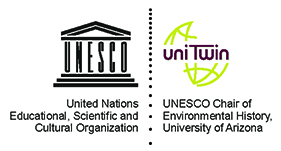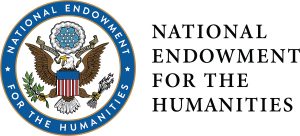Session 1: Sunday, July 12, 2020-Friday evening, July 17
Session 2: Sunday, July 19, 2020-Friday evening, July 24
Daily sessions will be led by scholars, teaching facilitators and cultural experts. By looking at Grand Coulee Dam as a landmark of competing perspectives, content will be organized around three central questions.
- How did Grand Coulee represent the material and moral aspirations of the United States during the mid-20th Century?
- How did indigenous peoples experience the re-plumbing of the Columbia River Valley?
- How would you write your own narrative of Grand Coulee?
In answering these questions, each day will be devoted to a central theme and framing question. Readings will be assigned for each day. The themes and questions with assigned readings are listed below.
Sunday - Welcome and Keynote
A meet and greet reception followed by a keynote presentation by David Pietz entitled "The Global Promise of Dams and Development in the Twentieth Century"
Readings - Selections from the following:
- Arnold Pacey, Meaning in Technology
- Bruce Sinclair, "Local History and National Culture"
- David E. Nye, American Technological Sublime
- Paul Josephson, Industrialized Nature
Monday - Salmon and Folklore in the Columbia River Watershed
How did the Columbia River landscape shape indigenous identity?
Readings - Selections from the following:
- Wm. Lang and Robert Carriker, eds. Great River of the West: Essays on the Columbia River
- Allen Pinkham, Salmon and His People
Tuesday - Kettle Falls: A Central Place of Indigenous Cultures
How did the river define material/symbolic practices of tribal communities?
Readings - Selections from the following:
- The Upper Columbia River Book of Legends
- David Chance, People of the Falls
- Paul Kane, Wanderings of an Artist Among the Indians of North America
- oral histories "We Built This Dam" and "Our Stories: The Tribal Viewpoint," (Bureau of Reclamation)
Wednesday - Grand Coulee Dam and the Modernist Impulse
What were the national and regional goals of building Grand Coulee Dam?
Readings - Selections from the following:
- Franklin Roosevelt, “Address to the Third World Conference, Washington, D.C.”
- Gerhard Peters and John T. Woolley, The American Presidency Project
- David E. Lilienthal, TVA: Democracy on the March
- Vincent Lagendijk, “How the Model Got its Mojo: How the TVA Became a Paradigm for Planners”
- Nard Jones, Still to the West
Thursday - The Impacts of the Grand Coulee Dam
What were the economic, social, and cultural impacts of the Grand Coulee Dam?
Readings - Selections from the following:
- Jennifer Ferguson, The Confederated Tribes of the Colville Reservation: Upper Columbia River Book of Legends
- David F. Martin, Austere Beauty: The Art of Z. Vanessa Helder
- Paul Pitzer, Harnassing a Dream: Grand Coulee Dam
Friday - Competing Historical Narratives of Grand Coulee
How is Grand Coulee Dam Remembered?
Participants will share lesson plans and curricular applications they have developed throughout the workshop.
Special Accommodations:
For those selected participants with special accessibility needs or dietary restrictions, please notify the local Project Co-Director Zeisler-Vralsted at dzeislervral@ewu.edu after selection.
For further information regarding accessibility at the Eastern Washington University campus, please contact Disability Support Services at DSS@ewu.edu or phone 509-359-6871.
EQUAL OPPORTUNITY STATEMENT
Endowment programs do not discriminate on the basis of race, color, religion, sex, national origin, disability, age, or sexual orientation. For further information, write to NEH Equal Opportunity Officer, 400 Seventh Street, S.W., Washington, D.C. 20506. TDD: 202/606 8282 (for the hearing impaired only).





